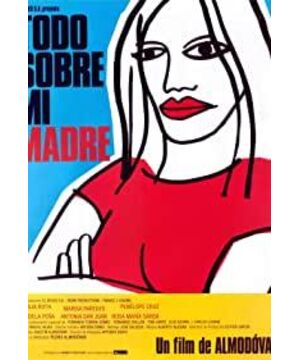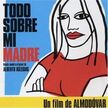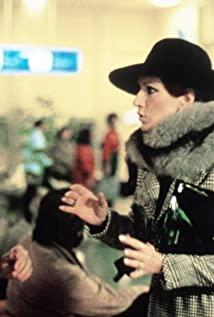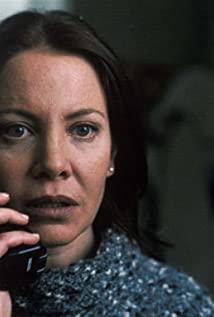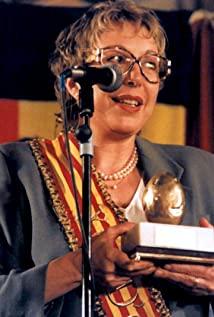Counting, the long and short films have been watched fourteen Almodovars. "Everything about my mother" made me feel that it could not be ranked among the best of the first fifteen movies, but it happened to be one of Almodovar's most famous movies, and it was a huge success. There is a contradiction. The storyline and setting of "Everything About My Mother" are dramatic, but the performances and characters are not (except for the characters with Mr. A's characteristics)-they are based on a realistic environment. . Maybe Mr. A hopes that the emotions in it can be expressed more real through these characters, so the dramatic text is disenchanted in this way. But this posture is really boring, and it is reminiscent of a kind of arrogance pretending to be plain. In addition, the two styles are really in conflict, so that the characters seem to exist in a world that is out of place. (Maybe it was intentional)
"All About My Mother" is an almost purely feminine melodrama, covering all emotions: loss, sadness, friendship and salvation. It depicts a group of women facing various situations with a strong will, such as being abandoned by their lover, Alzheimer's, unexpected pregnancy and death, AIDS, etc. The central character of the movie is Manuela (Cecilia Rotter), a mother who has been pregnant three times-the first time is the biological child Esteban, then Rosa (Penello) Played by Pu Cruz), she took her home, and finally a child under her custody. But Manuela is not the only mother in the film. Huma (Marisa Paredes) is the mother of a much younger lover, Nina (Candela Pena), and Rosa is pregnant with a child. All these women have the child-raising side and instincts, but no one is as determined as Manuela. With the child's unfulfilled desire, Manuela set out to find his biological father, and at the same time helped other women, which helped Manuela complete the vacancy in her heart. For Almodovar, the glory of women is also the source of their tragedy, their fear of loneliness, and how they avoid loneliness.
But the relationship between other people in the play and Manuela, personally, is flawed. First of all, Manuela’s apparent motive is obvious, that is, to fulfill his son’s unfulfilled wish, and this is established from the first fifteen minutes of the movie until the last moment of the movie. Then in the process of watching, I can feel that the stories of everyone else are more violent and more dramatic, so it seems as if Manuela is constantly breaking into the lives of others, one by one. Although Manuela is always in the lens, she is only in the center of the lens for a very small amount of time (you can imagine the experience of Hitchcock showing her face for two hours). And is Manuela's purpose realized in this? It should be like this, but such an arrangement is not satisfactory. On the contrary, except for Manuela, other characters seem to be responsible for entering and exiting on her timeline. Their existence is to allow Manuela to complete the release and redemption of motherhood.
Another key word is "performance". "All About My Mother" treats women as actors. They are born actors. Manuela once played against her husband in "A Streetcar Named Desire", and she became a substitute actor-this is inevitable. She represents all female actresses, including women in the director's private life. Almodovar said: "My original idea was to make a movie about the performance of certain non-actors. When I was a child, I remember seeing this quality in the women in my family. They pretended Much better than the men. Through their lies, they avoided more than one tragedy."
There is no logic, it is a long "short comment"
View more about All About My Mother reviews


